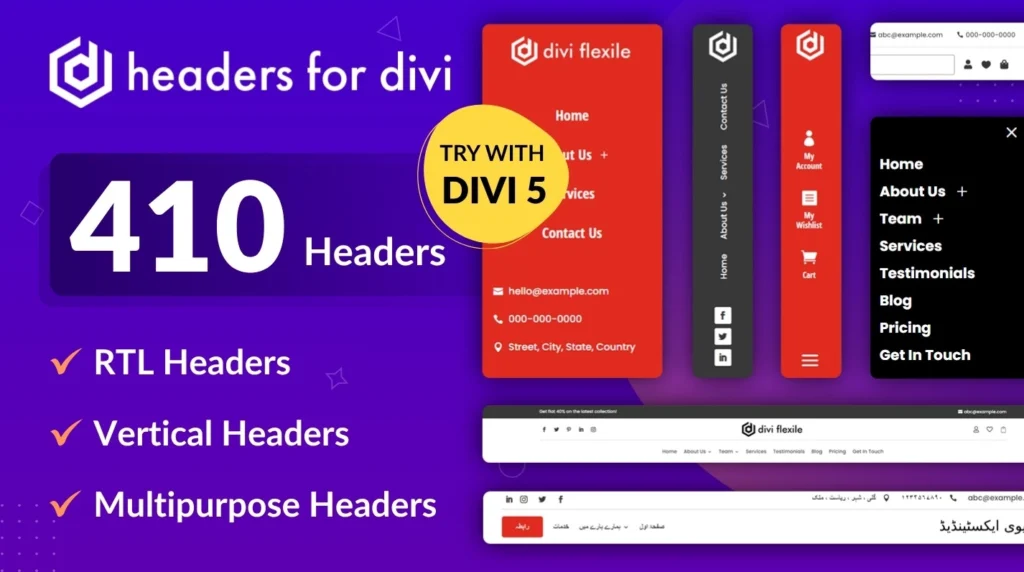1. Introduction
Affiliate Marketing for Bloggers
In the fast-paced world of digital marketing, affiliate marketing has emerged as a powerful revenue-generating strategy for bloggers and content creators. It involves promoting products or services and earning commissions for every sale or lead generated through your unique affiliate links. As bloggers, this presents an incredible opportunity to monetize our content while delivering value to our audience.
Importance of Choosing the Right Affiliate Programs
However, not all affiliate programs are created equal. The success of your affiliate marketing endeavors hinges on selecting the right affiliate programs to partner with. Choosing the wrong programs can lead to dissatisfaction for both you and your audience, potentially damaging your reputation and income potential. That’s why careful consideration and research are essential before diving into any affiliate partnership.
Purpose and Scope of the Blog Post
In this comprehensive blog post, we’ll explore the dynamic world of affiliate marketing, with a specific focus on WordPress plugin affiliate programs for the year 2024. WordPress plugins are essential tools for bloggers, and promoting them as an affiliate can be a lucrative endeavor. Our aim is to provide you with valuable insights into the key criteria for selecting affiliate programs, highlight the top WordPress plugin affiliate programs for 2024, and offer practical tips for affiliate marketing success. Whether you’re new to affiliate marketing or looking to enhance your current efforts, this guide will equip you with the knowledge and resources to make informed choices and maximize your earnings in the ever-evolving affiliate landscape.
2. Affiliate Marketing Basics
Explanation of Affiliate Marketing
Affiliate marketing, especially within the realm of WordPress plugins, is a strategic partnership between bloggers and plugin developers. Bloggers promote specific WordPress plugins through unique affiliate links, earning commissions for each successful sale or conversion that results from their promotional efforts. It’s a symbiotic relationship where bloggers help plugin developers reach a wider audience, while also earning a portion of the revenue generated.
How Bloggers Can Benefit from Affiliate Programs in the WordPress Plugin Niche
Bloggers can derive numerous advantages from participating in WordPress plugin affiliate programs:
1. Monetization: Affiliate marketing allows bloggers to monetize their WordPress-related content by promoting plugins that align with their audience’s needs and interests.
2. Enhanced User Experience: By recommending valuable plugins, bloggers can enhance their readers’ experience, boosting trust and credibility.
3. Recurring Revenue: Some WordPress plugins offer subscription-based pricing models, providing bloggers with recurring commissions as long as customers renew their subscriptions.
4. Expertise Recognition: Bloggers can establish themselves as experts in their niche by showcasing their knowledge of essential WordPress plugins.
5. Community Building: Promoting plugins can foster a sense of community among bloggers and their audience who share a common interest in WordPress.
6. Access to Resources: Affiliate programs often provide bloggers with marketing materials, banners, and support to optimize their promotional efforts.
Key Terms and Concepts Specific to WordPress Plugin Affiliate Marketing
1. Plugin Features: Understanding the features, benefits, and use cases of the WordPress plugins you promote is essential for effectively communicating their value to your audience.
2. WordPress Compatibility: Bloggers should ensure that the plugins they promote are compatible with the latest WordPress versions to avoid compatibility issues for their readers.
3. Plugin Support: Highlighting the availability of customer support and regular updates for the plugins can boost confidence in your recommendations.
4. Plugin Pricing Models: Familiarity with the pricing structures of the plugins (e.g., one-time purchase, subscription, freemium) helps bloggers set accurate expectations.
5. Plugin Updates: Encourage readers to keep their plugins updated for security and functionality reasons.
6. Plugin Reviews: Consider incorporating user reviews and testimonials into your promotional content to provide social proof.
Keeping these WordPress plugin-specific aspects in mind is crucial for bloggers looking to successfully engage in affiliate marketing within the WordPress ecosystem. It ensures that your promotions align with your readers’ needs and preferences while also helping you maximize your affiliate revenue.
3. Criteria for Selecting Affiliate Programs
Reliability and Reputation of Affiliate Programs
1. Background Check: Research the affiliate program’s history, including its track record of on-time payments and reliability.
2. User Reviews: Look for feedback and reviews from other affiliates to gauge their experiences.
3. Company Reputation: Assess the reputation of the company or developer behind the affiliate program, ensuring they have a positive standing within the industry.
Niche Relevance
1. Alignment with Your Blog’s Niche: Choose affiliate programs that align with your WordPress blog’s content and niche. Promoting products or services relevant to your audience increases the likelihood of conversions.
2. Target Audience Match: Ensure the affiliate programs cater to the needs and interests of your target audience.
Commission Rates and Payout Structure
1. Commission Percentage: Evaluate the commission rates offered by the affiliate programs. Higher percentages can lead to more substantial earnings.
2. Tiered Commissions: Check if the program offers tiered commission structures where your earnings increase as you refer more customers.
3. Recurring Commissions: Look for affiliate programs with recurring commission models, especially for plugins with subscription-based pricing.
4. Minimum Payout: Be aware of the minimum earnings threshold you must reach before receiving a payout.
Cookie Duration and Tracking
1. Cookie Duration: Understand the cookie duration, which determines how long an affiliate link’s tracking cookie remains active. Longer durations provide more opportunities for conversions.
2. Cross-Device Tracking: Ensure the affiliate program supports cross-device tracking to capture sales from users who switch devices during their purchase journey.
3. Transparent Tracking: Verify that the tracking system is transparent and reliable, preventing disputes over unattributed sales.
Affiliate Support and Resources
1. Dedicated Affiliate Manager: Check if the affiliate program assigns a dedicated affiliate manager to assist you with questions and strategies.
2. Marketing Materials: Assess the availability of promotional materials, such as banners, email templates, and landing pages, to streamline your marketing efforts.
3. Educational Resources: Determine if the program provides educational resources, webinars, or tutorials to help you optimize your affiliate marketing strategy.
Compliance with WordPress Guidelines
1. Adherence to WordPress Policies: Ensure that the affiliate programs and products you promote comply with WordPress guidelines and policies to maintain a positive relationship with the WordPress community.
2. Plugin Quality and Security: Promote plugins that meet high-quality and security standards to protect your readers’ websites from vulnerabilities.
By evaluating affiliate programs against these criteria, bloggers can make informed decisions and select programs that align with their audience’s needs and their own marketing goals. This approach helps ensure a mutually beneficial partnership with the affiliate program and maintains the trust of your readers.
4. Top WordPress Plugin Affiliate Programs for 2024
[Programs]
5. Additional Tips for Affiliate Marketing Success
Building Trust with Your Audience
1. Transparency: Be transparent about your affiliate relationships. Disclose your use of affiliate links and explain how they work to maintain trust with your audience.
2. Integrity: Promote products or services you genuinely believe in and have thoroughly vetted. Your recommendations should align with your blog’s values and your audience’s needs.
3. Honesty: Provide honest and unbiased reviews, highlighting both the pros and cons of the products or services you promote.
4. User Experience: Prioritize your audience’s experience. Ensure that the products or services you recommend genuinely solve their problems and enhance their experience.
Content Creation Strategies for Affiliate Marketing
1. Value-Driven Content: Create valuable, informative, and engaging content that addresses your audience’s pain points and demonstrates how the promoted products or services can solve them.
2. In-Depth Reviews: Write in-depth product reviews, tutorials, or case studies to provide comprehensive insights and help your readers make informed decisions.
3. Visual Content: Incorporate visual content, such as videos or infographics, to enhance the appeal and understanding of the products or services you’re promoting.
4. Comparison Posts: Create comparison posts that weigh the pros and cons of multiple products or services in your niche, helping readers make informed choices.
5. Email Marketing: Utilize email marketing to nurture leads and promote affiliate products through targeted email campaigns.
Tracking and Optimizing Your Affiliate Campaigns
1. Analytics Tools: Use analytics tools to track the performance of your affiliate links and campaigns. Analyze conversion rates, click-through rates, and other relevant metrics. 2. A/B Testing: Experiment with different strategies, such as varying your call-to-action (CTA) buttons or placement of affiliate links, and use A/B testing to determine which performs best. 3. Keyword Research: Incorporate relevant keywords in your content and optimize it for search engines to attract organic traffic. 4. Regular Audits: Periodically audit your affiliate links and promotions to ensure they are up to date, and replace or remove outdated or irrelevant content.
Legal and Ethical Considerations
1. Disclosure: Comply with legal requirements by clearly disclosing your affiliate relationships. Use a conspicuous and easily understandable disclosure statement. 2.
2. Data Privacy: Respect data privacy laws when collecting and handling user data. Ensure that your affiliate promotions align with data protection regulations.
3. FTC Guidelines: Familiarize yourself with the Federal Trade Commission (FTC) guidelines for affiliate marketing and adhere to them to avoid potential legal issues.
4. Ethical Marketing: Avoid deceptive or unethical marketing practices, such as clickbait or false claims. Uphold ethical standards in your promotional efforts.
By integrating these tips into your affiliate marketing strategy, you can not only increase your chances of success but also maintain a positive and ethical presence within the affiliate marketing landscape. Building trust, creating valuable content, tracking performance, and adhering to legal and ethical standards will contribute to a sustainable and reputable affiliate marketing approach.
6. Conclusion
Recap of the Top WordPress Plugin Affiliate Programs
In this blog post, we’ve explored the exciting world of affiliate marketing within the WordPress ecosystem, focusing on the top WordPress plugin affiliate programs for 2024. We’ve delved into the features, commission rates, and promotion strategies for several leading plugin programs, providing you with valuable insights into lucrative opportunities for monetizing your WordPress-related content.
Encouragement to Start or Improve Affiliate Marketing Efforts
If you’re a blogger, this is your chance to embark on or enhance your affiliate marketing journey. By carefully selecting the right affiliate programs, crafting engaging content, building trust with your audience, and optimizing your strategies, you can create a sustainable income stream while delivering genuine value to your readers. Remember that success in affiliate marketing often comes with patience, dedication, and a commitment to ethical practices.
Final Thoughts on the Evolving Affiliate Landscape in 2024
As we look ahead to 2024, the affiliate marketing landscape continues to evolve. New technologies, consumer trends, and regulations will shape the affiliate marketing industry. Stay adaptable and keep an eye on emerging opportunities and challenges. Embrace innovation and the ever-changing digital landscape to stay competitive and continue growing as an affiliate marketer.
Affiliate marketing in the WordPress plugin niche offers immense potential for bloggers to monetize their content while assisting their audience in enhancing their WordPress websites. With the right strategies, affiliate partnerships, and a dedication to providing value, your journey in affiliate marketing can be both rewarding and profitable. Cheers to a successful and prosperous 2024 in the world of WordPress plugin affiliate marketing!





0 Comments